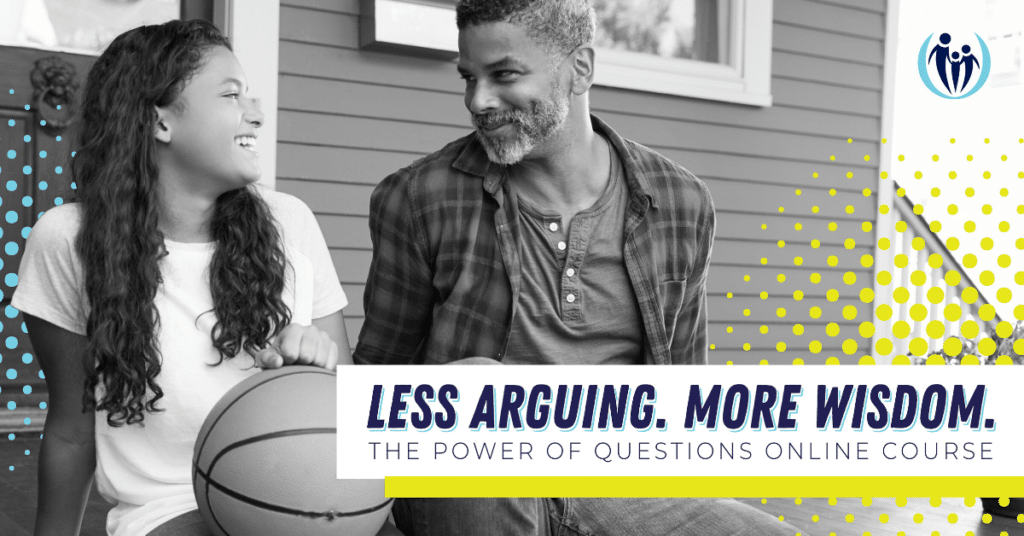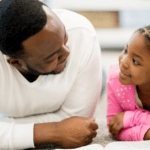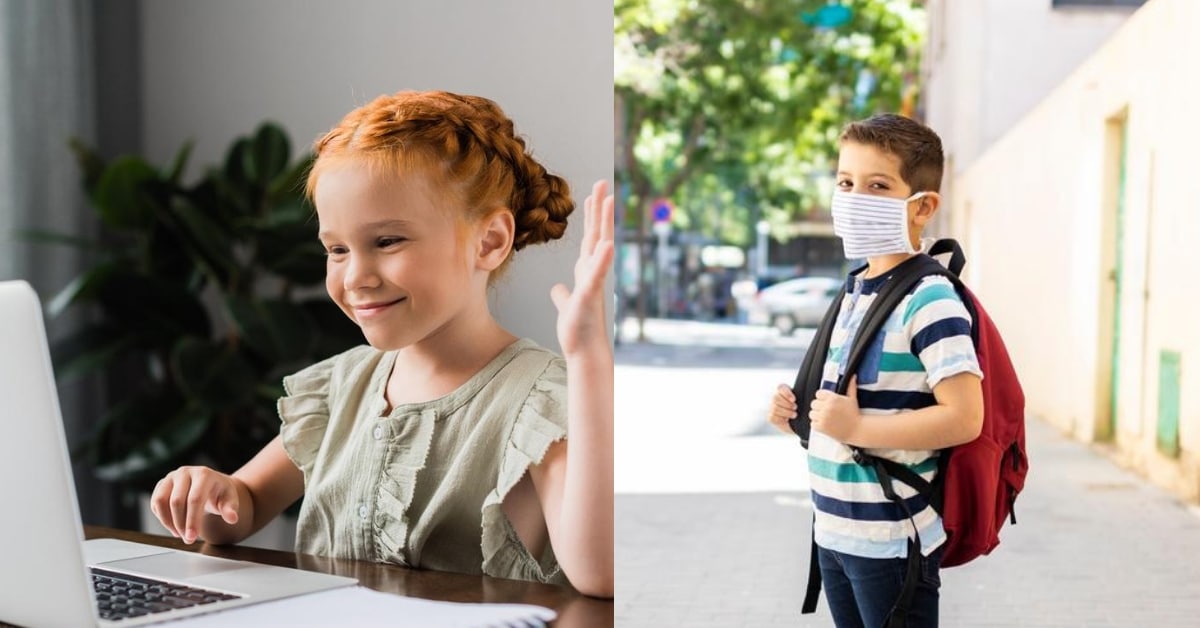
Get Ready for Pandemic Schooling…Round 2
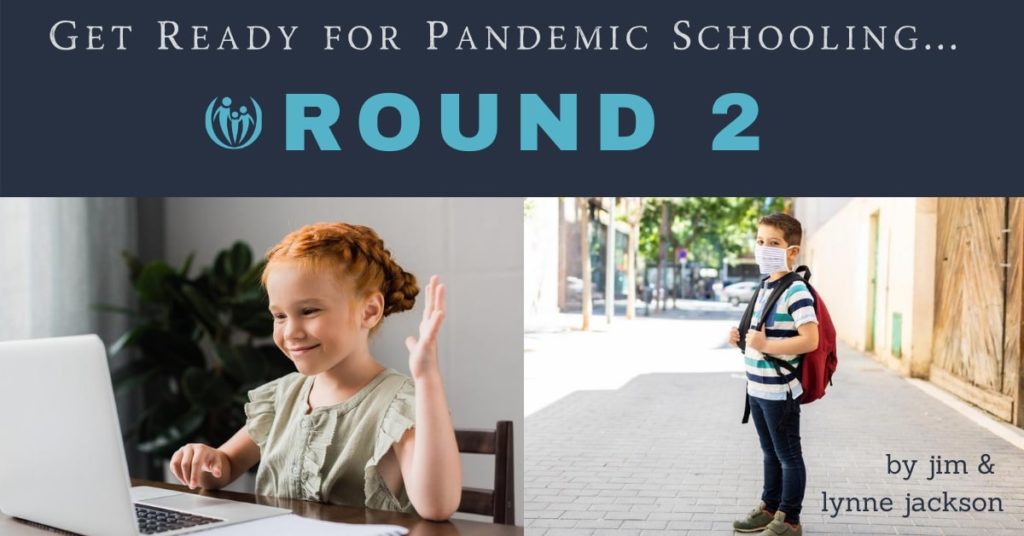
Heading back to school can be an anxious and stressful time for kids and parents– especially during a pandemic! The idea of another round of “pandemic schooling” can get everyone in the family into a tizzy. If your kids have typically attended school in a school building (rather than homeschooling) they likely are missing their friends, missing their teachers, worried about having to wear a mask, and wishing things were back to normal.
But there ARE ways in which parents and caregivers can intentionally help children face the upcoming school year. This is especially true if kids are feeling nervous about what school will look like during the continued adjustments to the pandemic.
Here are a few proactive tips to help smooth the transition to pandemic schooling this fall:
1. Identify and face any of your own anxieties about school during the Covid-19 pandemic.
Our children have a radar for anxiety. When they sense you, as the parent, are anxious it can lead to them feeling anxious as well. If you are struggling to manage your own anxiety, it will likely be more challenging for your kids to manage theirs.
Try checking your own emotions about it by asking yourself:
- Am I more worried about pandemic schooling during Covid-19 than my child is?
- What, specifically, worries me about school during a pandemic?
- What are some things I can do to keep my own anxiety in check? (Exercise? Prayer? Meditation? Talking to a good friend?)
- Are there certain times of day when I feel more calm so I can be calm when talking to my child about school?
It is totally understandable to feel anxious about what school will look like during a pandemic, and/or replaying the sudden, tough experience of distance learning last spring. You are not alone and many of your worries may even be warranted!
If you are significantly anxious about the next few months, don’t pretend you’re “relaxed and happy” about it. Instead, be honest in a way that will be helpful, not overwhelming, to your kids and focus on what you can do to navigate your own anxiety.
It might sound something like this:
“I know this isn’t how we’d like it. I’m a bit anxious about it too. So I’ll be working right along with you to trust God in it and invite God’s peace. what are your thoughts about how we could do that together?”
In short: be open and honest about your concerns (which will give freedom to your kids to share their concerns), but not overtly anxious.
2. Discuss the upcoming transition back to school with your child when you are both most relaxed.
Often fear and anxiety about school surfaces later in the day, or even at bedtime, when children are already feeling anxious or tired. This dynamic can feed the problem instead of help. If kids start to get revved up, equip them to calm and try redirecting to a more peaceful time: “Wow, you have some strong feelings about that. That’s important to talk about. Let’s do that right after breakfast tomorrow. I’ll write a note to remind us.”
[If you want more information on how to have great conversations with your kids, register for our Power of Questions online course.]
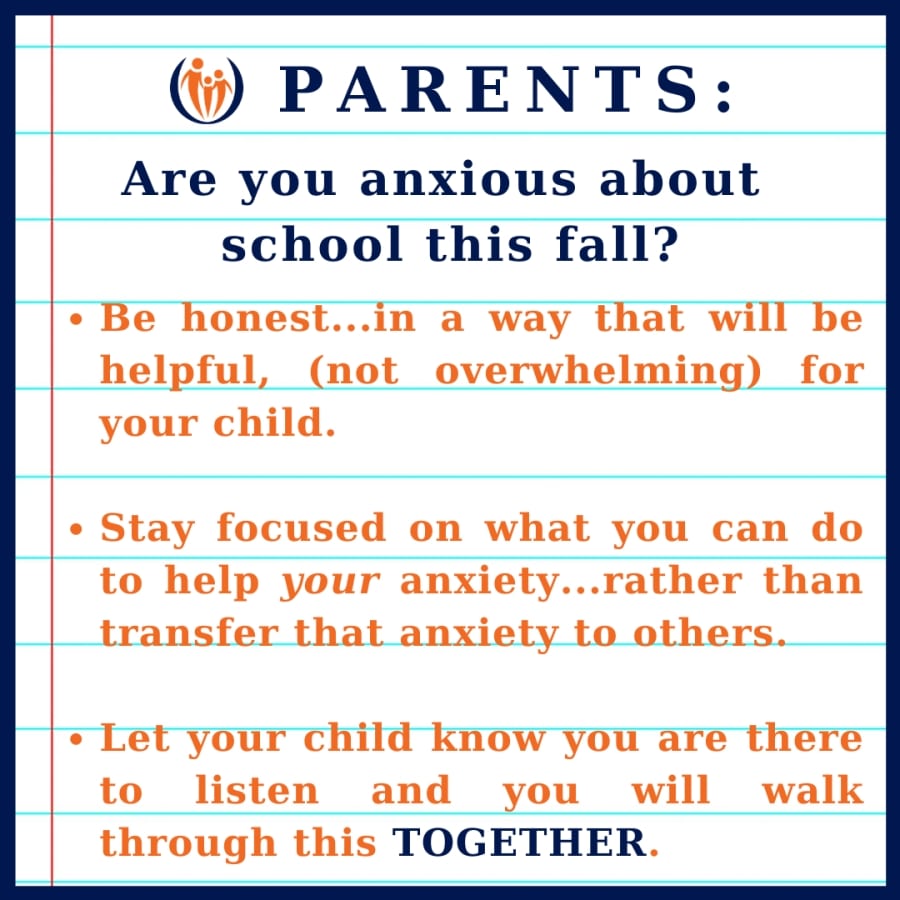
3. Start your discussion with hopeful empathy.
Knowing you understand what they’re going through, (even if you’ve never experienced pandemic schooling yourself) will help your kids feel less overwhelmed. Try to empathize with your child without strengthening their fear of the actual problem/threat. This will be challenging this year as there is a legitimate and looming problem also known as Covid-19. But you can do it!
For example you might say: (adapt for age of child)
“Every year starting school made me nervous too. And I didn’t have to think about things like missing my friends, wearing a mask, distance learning, or things like that. But I can tell you that I’m here to listen to you and we can figure this out together.”
4. Gently remind your child of past successes or times of “overcoming.”
Avoid telling your child how to feel. Instead make neutral observations or ask questions to remind them of how they dealt with tough situations in the past. (“Do you remember when… How did you get through it?”) This boosts confidence and empowers children to be responsible for their own feelings and resilient when they face adversity.
If your school system has decided to go with full distance learning this fall, remind your child of specific successes (no matter how small!) with this model in the spring of 2020. What things did they like about being home? Work together to make a list of all the good things about doing school at home (more sleep, snacks, shorter learning day, play breaks when they need them, etc.) and refer to it as needed.
5. Make a plan together with your child to help manage anxiety.
Once your child has identified their main anxiety* about pandemic schooling, facilitate a discussion and collaborate with your child to problem-solve. Help them determine what will make them feel more comfortable or confident. If they get stuck, offer a few suggestions and let them choose what they think will be most helpful. Have them practice saying or doing some of these things.
If you are mostly schooling at home, brainstorm ideas for “gym class” each day. If you plan to put fun big muscle activities into your day, it can make a big difference in kids’ anxiety about distance learning, as well as their ability to focus and learn when school starts.
*Keep in mind that your child might not be anxious about school during Covid-19 at all! Their anxiety may be about something totally unrelated. Working to validate, empathize, and problem solve with your child, no matter what their anxiety is about, will help them know you are for them.
6. If possible, given current safety precautions, pay a visit.*
Often the thing we fear the most is the unknown — so try to make it known! Meeting his teacher ahead of time was by far the most important thing that mitigated our son Daniel’s anxiety about second grade, after a tough first grade year.
Take time to visit the school, find your child’s classroom, play on the playground, and see where everything is. Depending on your school district’s policies, this may still be possible. You might be able to set up a brief meeting in-person or virtual meeting with the teacher, or at least look at a picture and information about your child’s teacher ahead of time.
School anxiety, especially this fall during a time of global pandemic, holds great opportunity to help your child learn to navigate life’s inevitable stresses and worries. When our son Noah was anxious about school, we asked him if he would like to find him a verse about God’s peace, and he has loved Philippians 4:6-7 ever since!
You can eagerly capitalize on the opportunity inherent in this challenge. This will equip your children to empathize well and handle whatever life throws at them in the future. They will thank you for it later. 😉
*School systems, both in the US and internationally, have different guidelines and safety policies in place. Please refer to those when planning a potential visit.
Related Posts
In our online course, The Power of Questions: Less arguing. More wisdom., you will learn the art of asking questions that build internal wisdom and character in your kids, and create a culture of teamwork in your family. Join us today!
Read what Rachel had to say after finishing the course:
I loved this course! I’m a mom to three young girls (5,3, & 1). I was unsure this course would fit with such little ones but after going through the whole course I’m realizing how beneficial it’s going to be for our family. I feel like it’s incredibly applicable and I will be going back to the book and course many times!
